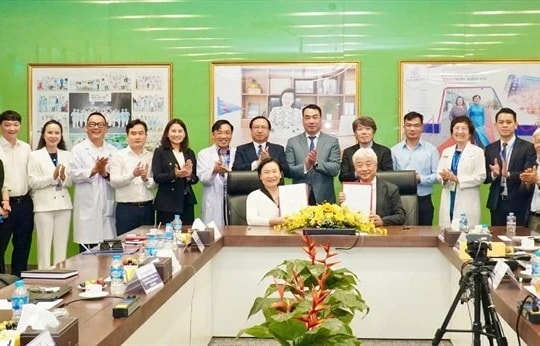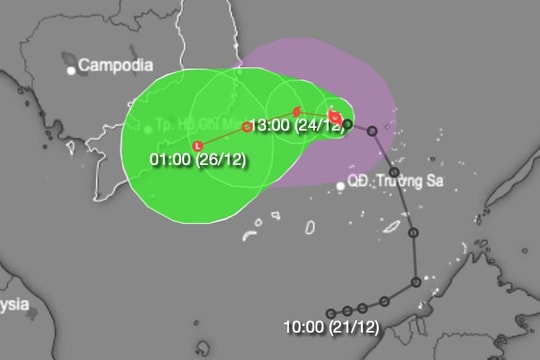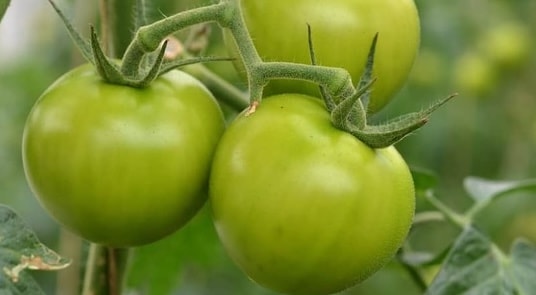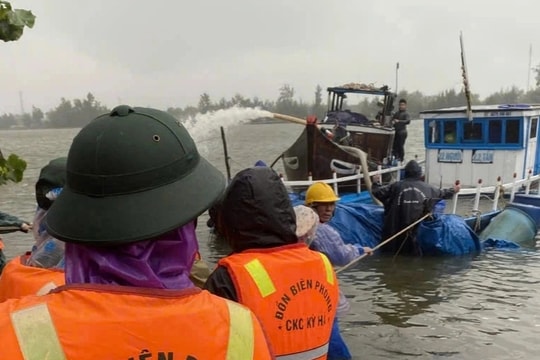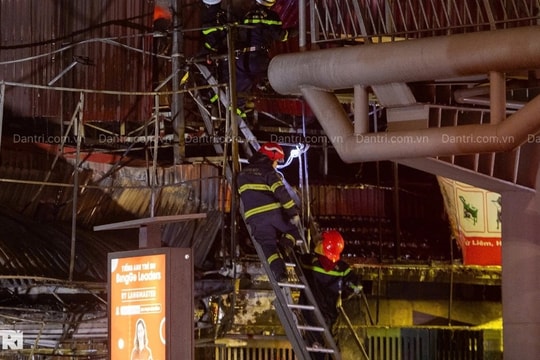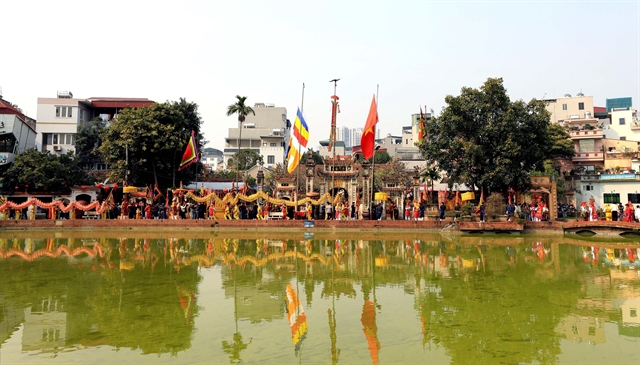 |
| Satellite cities and the areas surrounding Hà Nội are making progress in agriculture while preserving and promoting the values of ancient villages. — Photo courtesy of Hà Nội Department of Agriculture and Rural Development |
HÀ NỘI — Hà Nội boasts a unique agriculture, in the heart of the city, which requires significant efforts to sustainably develop the sector following modern, clean and organic practices.
The city’s agricultural growth must also be linked with the circular economy and the processing industry and ensure sustainable connection to the global value chains.
According to Nguyễn Mạnh Quyền, vice chairman of Hà Nội People’s Committee, with the capital city’s current conditions, the focus lies in the produce and farming models, rather than the production process.
These must be suitable to the ecological conditions, environmental protection measures, as well as the capital city’s economic scale.
Therefore, Hà Nội agriculture must leverage its intellectual power in production, he said.
While the scale might not be extensive, the sector must employ advanced technology for high quality and product value.
In addition, local farming should utilise Hà Nội’s ecological and cultural strengths to develop a unique agriculture.
As the capital city and an economic and cultural centre of the country, Hà Nội must also act as a focal point of the market economy, a transhipment hub and an intermediate point between municipal and provincial economies nationwide, said Quyền.
Director of Hà Nội Department of Agriculture and Rural Development Nguyễn Xuân Đại added that Hà Nội aspires to transform the suburban zones of the city with a new approach, which emphasises the traditional cultural foundation and improved living standards in these areas.
The city’s concept of ‘urban areas within villages, villages within urban areas’ is also expected to contribute to the formation of agricultural and suburban tourism destinations.
Hà Nội also needs to focus on planning farming zones based on economic and ecological functions, to develop modern urban agriculture, based on its people’s cultural values, the Red River Delta agricultural civilisation and in alignment with international integration and global connections, said Đại.
Accordingly, the capital city must develop specific mechanisms in the planning and management of its agricultural zones, as well as a growth direction that fits each of its development zones.
Specifically, in the historical inner-city, Hà Nội should develop urban agriculture following the model of a circular economy with high technology, elite and smart farming practices, creating green spaces and ecological landscapes.
Meanwhile, in the larger urban area, the growth direction should follow the model of ‘city within city’, while the outer zones within future city districts should be scaled up to urban areas where agricultural models align with eco-tourism, offering tourist experiences and leisure activities.
Satellite urban zones and adjacent areas should be designated for agricultural production and preserving and promoting the values of ancient villages, craft villages, as well as educational and experiential tourism.
Key agricultural production areas include the districts of Ba Vì, Phúc Thọ, Ứng Hòa, Mỹ Đức, Quốc Oai and Thạch Thất, which will focus on large-scale commodity agricultural production, agricultural with industrial combination, high-tech agriculture and science-technology applications, linked with the development of agricultural supply chains in the Red River Delta.
Aiming to be a transhipment and connection hub, Hà Nội has been making great progress in forming links that allow for safe, high-quality farm produce supply for people.
The capital city continues to maintain and grow its 159 safe agricultural production and consumption chains, of which 53 are for animal products and 106 are for vegetables. These chains have successfully engaged multiple businesses, cooperatives and farmers.
Hà Nội’s agricultural sector also coordinates with 43 cities and provinces nationwide to proactively manage and support the development of 926 safe food supply chains for the capital city.
Director of BigGreen Co Ltd Nguyễn Tiến Hưng added that his company has established various stores in Hà Nội to introduce farm produce from other cities and provinces.
With the shrinking farming land in Hà Nội, agricultural businesses in the city need to develop more links with other cities and provinces for a steady supply for the people.
Currently, products under the OCOP (One Commune - One Product) Programme account for 60-65 per cent of BigGreen’s offering.
The company also has 85 OCOP product sale points in 25 towns and districts, where store managers will prioritise marketing Hà Nội’s OCOP products.
Meanwhile, thanks to crop restructuring and focusing on high-quality seedlings, Hà Nội has developed multiple high-tech and cost-effective models.
The city now boasts 285 high-tech agricultural production models, including 185 in plant cultivation, 45 in livestock farming, 54 in aquaculture and one combining plant cultivation and livestock farming.
Several models have invested in advanced technology and equipment, which has brought positive economic results in alignment with the city’s circumstances.
Alongside crop restructuring, Hà Nội has also been working on multiple green agricultural models linked with eco-tourism.
To date, 58.9 per cent of the capital city’s land is rural and agricultural areas connected with green production zones.
Hà Nội’s major plans in execution have identified a focus on investing and developing ecological agriculture and maximising resources from urban agriculture.
Dr Trần Đức Viên, chairman of the Academy Council at the Vietnam National University of Agriculture, believes that Hà Nội’s agricultural sector is on the right track.
The local agriculture should leverage the city’s human resources, intellectual power and its position as an economic centre, he said.
The agricultural economy is not simply about production but also the efficiency of production models, Viên said, adding that Hà Nội must be the supply source of high-quality raw materials and inputs as well as intellectual power to other cities and provinces.
Hà Nội needs to develop appropriate land resources alongside a favourable infrastructure for the ecological environment and the planned satellite cities, all while forming spaces for the city’s buffer zones where the local agricultural sector leverages its strengths, he said. — VNS



